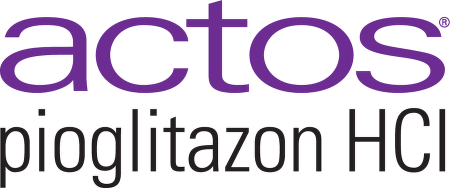In short:

There is no official recall on Actos.

Bladder cancer has been linked to use of the drug.

Takeda agreed to pay $2.4 billion to settle around 9,000 bladder cancer cases.

The Deadly Side Effects of Actos
Studies in the United States, Europe, and Canada now show more severe side effects with long-term use of Actos, including an 83 percent increase in the risk of developing bladder cancer.

Actos Lawsuit & Settlement News
Thousands have filed lawsuits against the maker of Invokana in Federal and State courts around the country and some cases have already been settled. Find out if you qualify for a claim and how much it may be worth.

Latest Actos News
Attorneys are still helping those affected by Invokana file claims. However, the time to take action is limited. Speak to a lawyer today to learn about your options and join the litigation. It costs nothing unless you win.
Actos is the brand name for a chemical called pioglitazone, and was designed to treat type 2 diabetes.

What is Actos (pioglitazone)?
Actos is manufactured and sold by Takeda Pharmaceuticals North America, Inc., a subsidy of the Japanese company Takeda Limited.
The drug has been prescribed all over the world since 1999, when it was first approved by the FDA. In 2010 alone, two million prescriptions were written for patients with type 2 diabetes. However, studies have linked this drug to a serious risk: bladder cancer.
In June 2011, a French study indicated that long-term use of Actos could increase the risk for developing bladder cancer by 40 percent. Immediately after the study’s release, the FDA issued its own safety alert concerning bladder cancer risks. Not long afterward, Health Canada issued its own warning against Actos, while France and Germany banned the drug altogether. Then, the evidence against Actos continued to build. In May 2012, the British Medical Journal published research showing that extended use carried an 83% increased risk of bladder cancer.
Actos Recall?
Side effects of Actos now include “a greater risk of bladder cancer with prolonged use of the drug.” The FDA has not recalled Actos, although it did issue a warning in the U.S. on June 15, 2011. Without an actual recall, experts suspect that users who have been diagnosed with bladder cancer may not know the cause. This may include an estimated 10,000 people.
Warnings about Actos began in June 2011 when the French Medicines Agency discovered a correlation between long-term Actos use and as much as a 40 percent increase in bladder cancer. At that point, France and Germany banned the drug. The U.S has not banned the drug, and short term use appears to be safe from serious side effects.
Bladder Cancer Symptoms
Researchers in Europe, Canada and the United States have conducted studies that show conclusive evidence of an increased risk for bladder cancer among patients who took Actos for more than one year.
Researchers at McGill University in Montreal proposed that Actos could cause crystal formations in the bladder, cause chronic irritation and even cancer. Experts fear that up to 10,000 patients may be affected in this way.
Bladder cancer usually begins in the cells that line the bladder, causing them to grow abnormally. The cells can develop mutations that cause them to grow out of control and form a tumor. In early stages, a tumor can usually be removed. However, even early stage bladder cancer has to be monitored closely for recurring developments. Bladder cancer treatment may involve surgery, vaccine therapy, chemotherapy, radiation therapy, or immunotherapy.
While bladder cancer affects nearly 70,000 people each year, it is considered highly treatable if discovered early.
- Frequent or painful urination
- Blood in urine or discoloration of urine
- Back pain
- Abdominal pain.
If you have been taking Actos and have any of these symptoms, it is important to inform your doctor right away.



